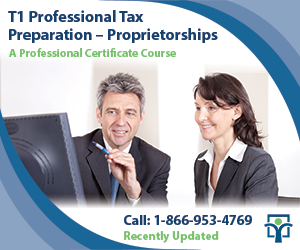Last updated: December 12 2016

Year-End Tax Tips: Claiming Auto Expenses
Are you using your automobile for work or for your own business? Perhaps you are unsure whether you should make a claim for auto expenses this year; or maybe you suspect you aren’t claiming everything you are entitled to. This is a good reason to see your tax advisor, and make sure you are prepared to make a full claim.
Eligible taxpayers are those who use their automobiles for driving for self-employment purposes, in which case a T2125 Statement of Business Income or Professional Activities must be filed.
In some cases, employees may also make the claim; however, the auto must be used as part of their conditions of employment, which requires that travel expenses be paid by the employee. This must be verified by the employer on form T2200 Declaration of Conditions of Employment.
Here are the rules for claiming the various expenses incurred, as told to a young millennial couple, Chet and Catherine, by their accountant, Malcolm, excerpted from Family Tax Essentials, How to Build a Wealth Purpose with a Tax Strategy:
“What can I claim for my auto expenses?” Both Chet and Catherine wanted to know, but Catherine asked first. She dreamed of a little foreign sports car and all the write-offs that would bring. Unfortunately, Malcolm burst her bubble!
“Most people who write off auto expense costs on their tax returns will use their vehicle for both personal and business/employment purposes. It is necessary to keep that meticulous auto log which records distance driven for both purposes, for at least one year (the base year).” Malcolm explained to Chet and Catherine that after this, you can keep the records for as few as three consecutive months.
“So long as your driving patterns do not vary on either side by more than 10% in a subsequent year, you will be able to claim expenses based on the ratio determined by this formula:
 |
“When there is a ‘mixed use’ of the car, the expenses are first totaled,” said Malcolm. “This is based on your actual receipts and a log of cash expenditures, like car washes for example.” He explained the total costs are then prorated based on personal/business use:
Total Allowable Expenses x Allowable Business Use Ratio
“There are two types of auto expenses that can be claimed: fixed and operating, and this can have an important effect on the type of car you buy or lease and how much money you spend, Catherine,” Malcolm warned. He scanned and sent over an Auto Expense Fact Sheet after their call, which Catherine and Chet studied carefully:
 |
Tax Fact Sheet: Claiming Automobile Expenses
A. Fixed Expenses include:
- Capital Cost Allowance (subject to a maximum cost of $30,000, plus taxes)
- leasing costs (subject to a maximum of $800 a month, plus taxes)
- interest costs (subject to a maximum of $300 a month)
B. Operating Expenses include:
- gas and oil, tires, maintenance and repairs
- car washes (keep track of coin operated washes)
- insurance, license fees
- auto club memberships
- parking (generally parking expenses incurred for business purposes are fully deductible and not subject to a proration for personal component)
As a self-employed person, Catherine would add the fair market value of her new car to a special schedule, upon which a depreciation amount would be calculated. Malcolm called it the “declining balance” method of claiming Capital Cost Allowance, or CCA.
In an attached note, Malcolm made reference to Catherine’s dream car: “How much you can claim for fixed expenses is restricted, as you can see. Your deductible claims will depend on the cost of the car you drive and for what purposes you use it. Therefore, the first rule to remember when buying a car ‘for tax purposes’ is that you will only have a partial claim, especially if it is a luxury vehicle. Sorry, Catherine.”
The Money Moral. Claiming auto expenses can be tricky, but will lead to a bigger tax refund if properly reported, and receipts and auto logs are kept. Always enlist the help of a tax professional the first time you make the claim and before year end, to get the best after-tax results.
The gift of tax literacy is an innovative and valuable one. Family Tax Essentials, by Evelyn Jacks, is available from Knowledge Bureau.
©2016 Knowledge Bureau Inc. All Rights Reserved.





